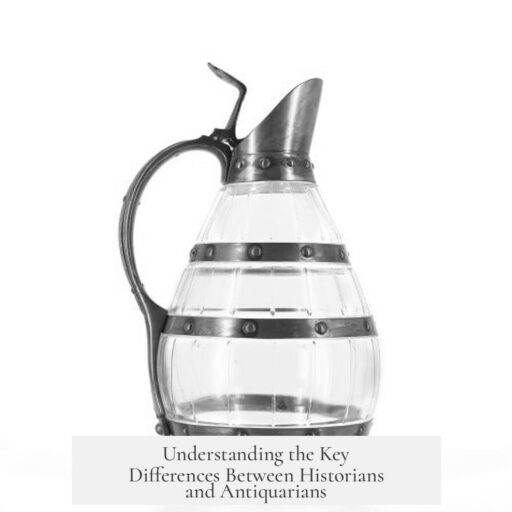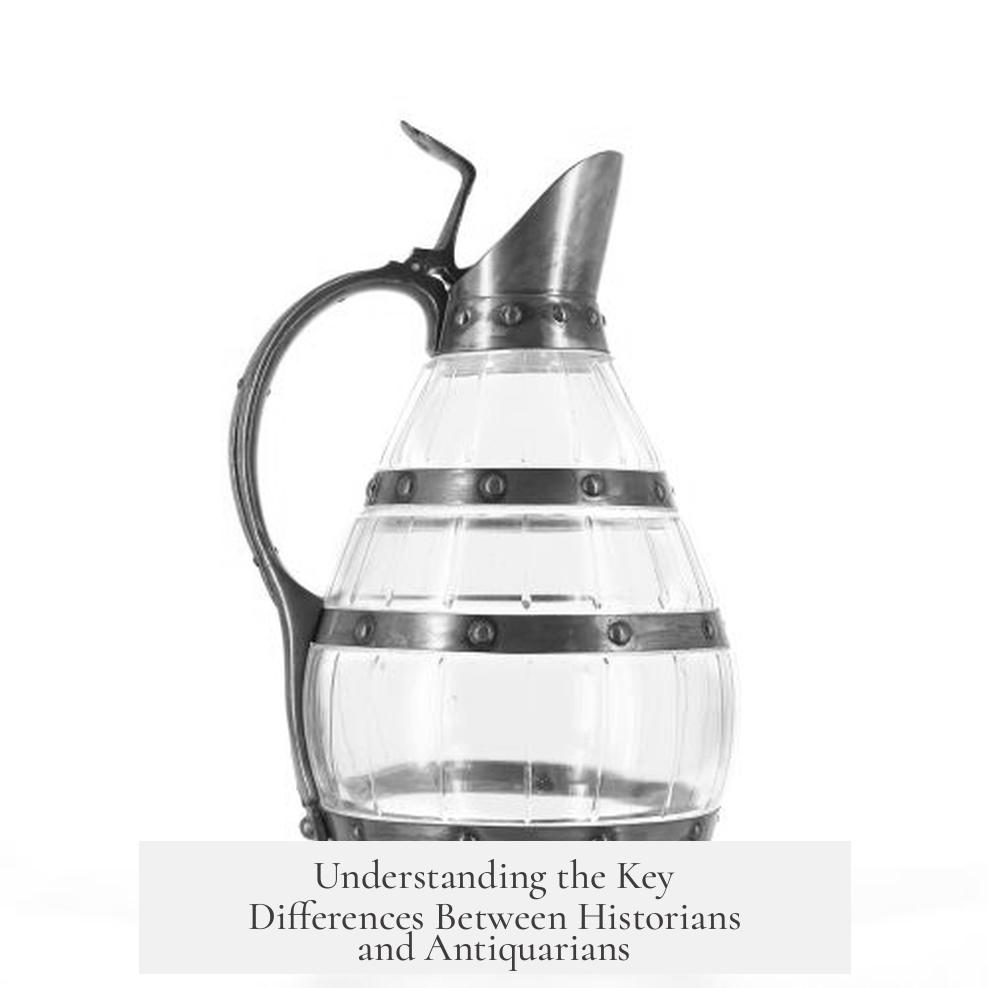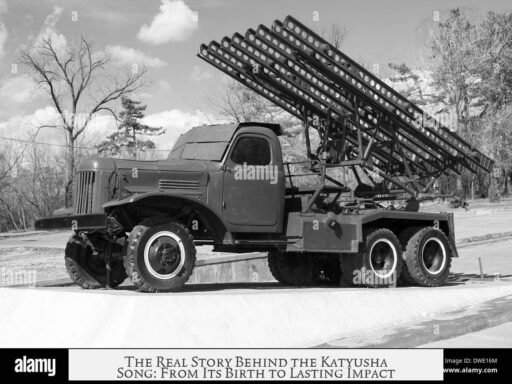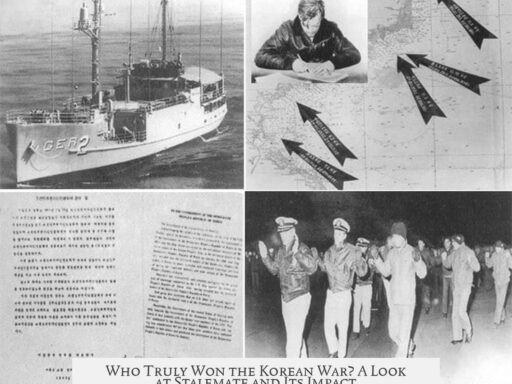A historian and an antiquarian differ primarily in their focus, methods, and purpose regarding the past. Historians study past events through written records and evidence to understand causes and narratives. Antiquarians specialize in collecting and studying historical objects or antiquities for their own sake.
An antiquarian concentrates on physical artifacts. Their interest lies in the objects themselves, such as coins, tools, or relics. This focus contrasts with historians, who mainly analyze written texts and documents to interpret and explain historical events.
Antiquarians resemble amateur archaeologists because they study material remains. However, the term “antiquarian” is mostly historical and rarely applies to modern scholars. Antiquarians often collect artifacts and focus on detailed descriptions or cataloging. Their approach tends to emphasize the preservation and documentation of objects rather than exploring their broader historical significance.
Historians use artifacts as evidence to build arguments or narratives. They aim to answer questions about why events happened and how factors like technology or politics influenced outcomes. For example, a historian might write a book on how technology affected World War II battles. In contrast, an antiquarian might catalog every plane and tank used during that war without analyzing their impact.
While both roles deal with the past, their objectives and methods diverge. Historians seek meaning and understanding through synthesis and interpretation. Antiquarians focus on gathering and preserving material culture. Despite these differences, both can contribute to knowledge. Antiquarian collections often provide valuable resources for historians. Conversely, historical context can deepen the appreciation of artifacts.
These distinct perspectives shape different professional communities and approaches:
- Historians engage more with textual analysis and broader historical questions.
- Antiquarians emphasize artifact collection and preservation.
- Their work environments, goals, and methods rarely overlap fully today.
Key takeaways:
- Historians interpret the past through texts and evidence to tell stories and explain causes.
- Antiquarians focus on collecting and studying historical objects for their own sake.
- Antiquarians resemble amateur archaeologists but differ from professional historians in approach.
- Artifacts collected by antiquarians support historical research.
- The terms reflect different relationships with history and usually involve different methods and goals.
What’s the Difference Between a Historian and an Antiquarian?
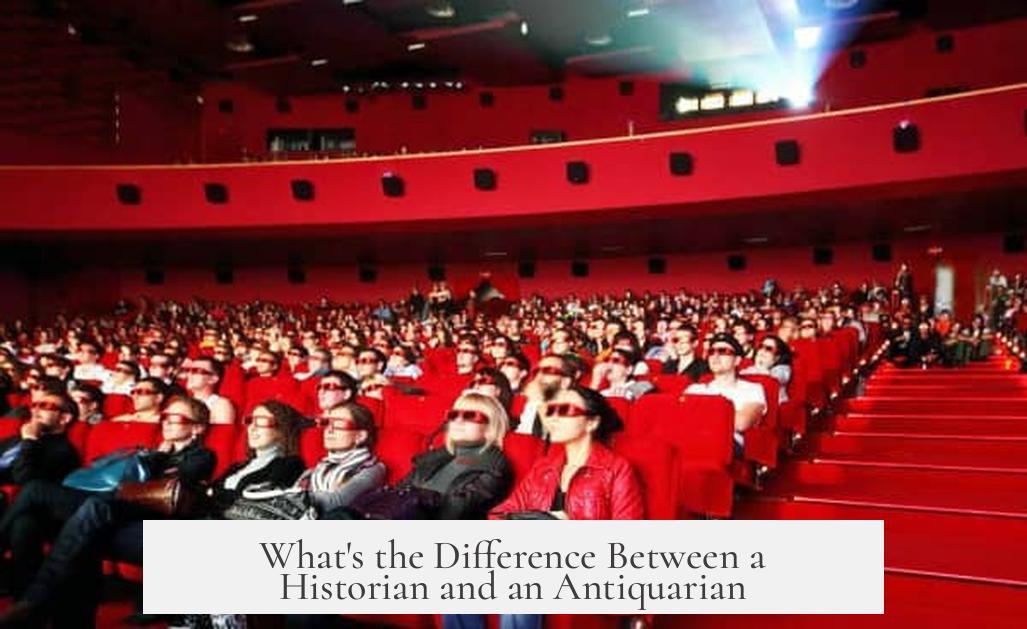
At first glance, both historians and antiquarians are obsessed with the past — but they’re definitely not the same creature. The main difference? Historians study the past through written texts and ask big-picture questions, while antiquarians obsess over old objects themselves, collecting and cataloging artifacts. Let’s unravel this for you with enough detail to impress your history professor, and perhaps toss in a chuckle or two because history doesn’t always have to be dry.
The Core of the Matter: Definitions and Focus
The antiquarian is the ultimate collector, eyeing every dusty artifact like it’s the crown jewel of the past. They’re fascinated with things—actual physical remnants of history such as coins, pottery, jewelry, weapons, and manuscripts. Their passion is for the material culture of bygone eras. Imagine a treasure hunter with a magnifying glass, not just looking but _drooling_ over details like engravings or wear patterns. It’s all about the object itself.
Meanwhile, the historian is more like a detective piecing together a crime story, but centuries old. Historians primarily study the past through narratives—documents, letters, official records, diaries, newspapers, inscriptions. They use these texts to understand events, causes, and effects. Writing a compelling story or argument about history is their game.
Amateur Archaeologists? Antiquarians and Archaeology
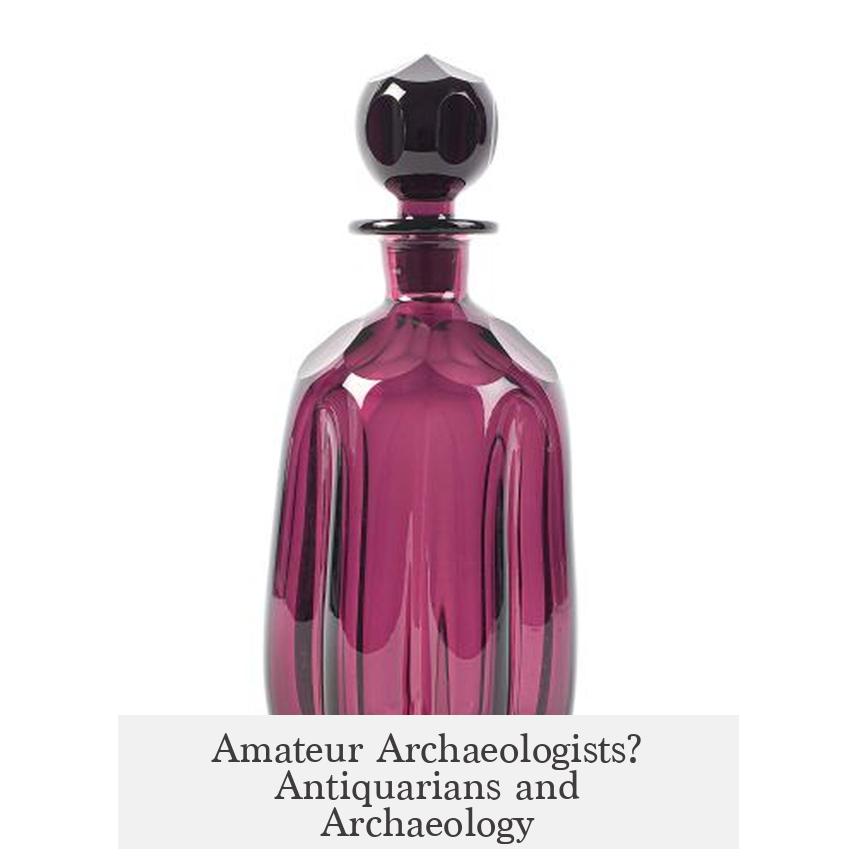
Here’s where things get interesting: antiquarians are sometimes called the grandaddies of archaeology. They too delve into material remains but without the full scientific rigor modern archaeologists apply today. Think of them as the enthusiastic hobbyists, the “amateur archaeologists” who blazed trails before standardized field methods arrived.
But before you start calling every collector an antiquarian, note this term is now mostly historical. It’s rare to hear someone today proudly say, “I’m an antiquarian!” Usually, that label belongs to the old-school enthusiasts documented in history books, not contemporary professionals.
Approaches to The Past: Objects vs. Stories
Antiquarians tend to hoard — birthday souvenir shops would envy their collection skills. They focus so much on artifacts’ physical attributes that sometimes, the bigger story seems lost. Their obsession with minute details—such as every scratch on a medieval sword or every pattern on a Roman vase—can make their work feel isolated from historical understanding.
Historians, however, are constantly asking “why” and “how.” They use artifacts as clues, not just curios. A historian might analyze a sword or vase to understand trade routes, cultural exchanges, or warfare tactics. Their goal is an interpretation—a narrative that explains the past with context, not just a checklist of shiny relics.
Putting Their Work Side by Side
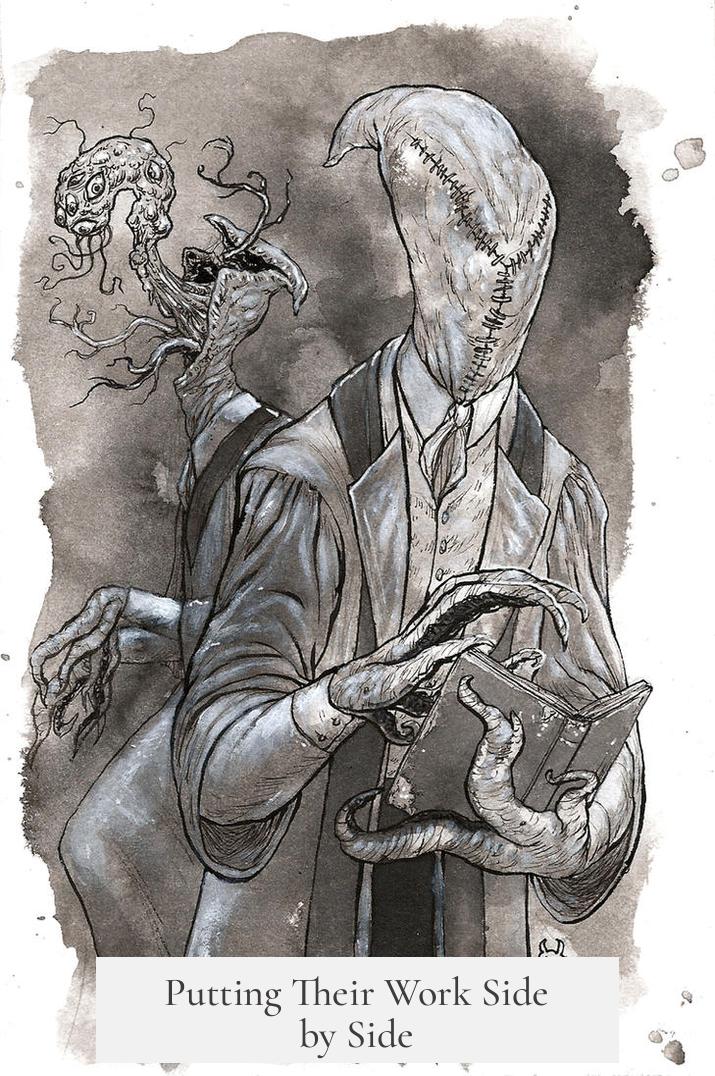
Think about World War II. An antiquarian treating WWII artifacts might which catalog every plane, tank, and helmet used in the war—a meticulous inventory of hardware, bullet points of history as objects. They’d probably know serial numbers, paint colors, and production dates by heart.
On the other hand, a historian would interpret those objects to build an argument, such as how technological innovation in aircraft influenced the outcome of battles. They would use those same planes and tanks as evidence to tell a bigger story about war strategy, industrial capacity, or societal impact.
Overlap and Mutual Benefit
Despite these distinctions, historians and antiquarians aren’t enemies locked in a time warp rivalry. The artifacts collected and cataloged by antiquarians can serve historians immensely. Detailed listings and descriptions form valuable repositories of information that historians lean upon when constructing narratives.
Likewise, the context and stories historians provide give meaning to those artifacts, elevating them beyond curious objects to pieces of evidence that shape our understanding.
They dance around the past, each with a different tune, yet often in sync.
Why Does It Matter? Insights for Enthusiasts and Researchers
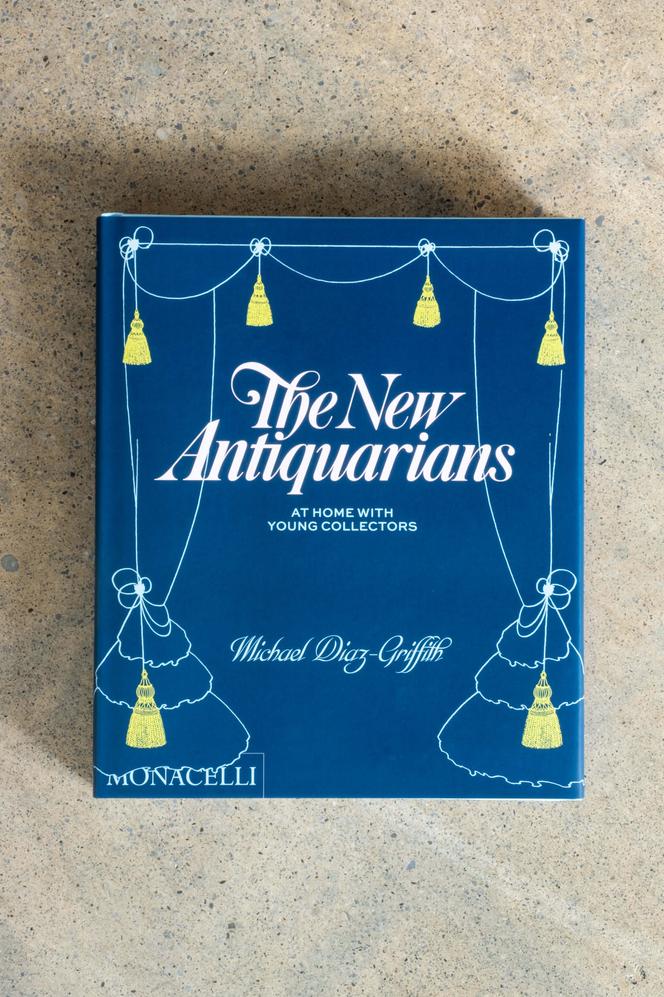
Understanding this difference can help anyone interested in history choose the right path or appreciate both roles more fully. If you love hands-on collecting and treasure details, imagine becoming an antiquarian—but remember, authenticity and provenance matter because the past is precious.
If you prefer documents, big ideas, and storytelling, the historian’s road awaits. You’ll drive conclusions from evidence, crafting narratives that inform or inspire.
And hey, if you’re juggling both worlds, you’re not alone. Professional archaeologists, museum curators, and many scholars blend these approaches, combining meticulous artifact handling with interpretive research.
Final Thoughts: From Curiosity to Scholarship
The historian and antiquarian share an urge to explore history’s depths, but their journeys differ fundamentally. The antiquarian admires the past’s physical residues, a collector of historical treasures as ends themselves. The historian transforms those relics into stories, questions, and understanding.
Next time you visit a museum or leaf through a dusty archive, ask yourself: Are you gravitating toward the thrill of the object, or the stories it can tell? Recognizing these differences enriches how we appreciate history’s many facets.
So, the next time someone calls you an antiquarian or historian, you can now nod sagely, smile, and say, “Yes, but there’s more to it than that…”
